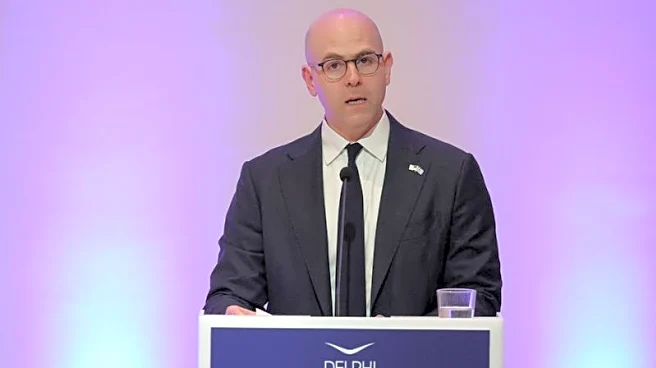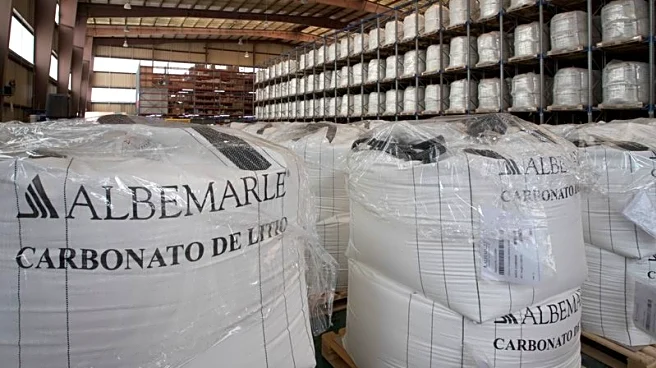What is the story about?
What's Happening?
The Trump administration has announced measures to support the coal industry, including opening 13.1 million acres of federal land for coal mining and reducing royalty rates for coal companies. The Department of Energy plans to allocate $625 million to upgrade existing coal plants to extend their operational life. Additionally, the Environmental Protection Agency (EPA) intends to repeal regulations from the Biden administration aimed at reducing pollutants from coal plants. These actions are part of a broader effort to maintain coal as a significant component of the U.S. electricity mix, despite warnings from scientists about the environmental and economic costs compared to cleaner energy sources.
Why It's Important?
The administration's support for coal has sparked outrage among environmental groups, who argue that coal is the dirtiest and most expensive form of electricity, contributing to rising energy costs and environmental degradation. The policy shift could have significant implications for public health, climate change, and the U.S. energy landscape. By prioritizing coal, the administration risks undermining efforts to transition to cleaner energy sources, potentially affecting investment in renewables and the competitiveness of the U.S. energy sector. The decision also highlights the ongoing cultural and political battles over energy policy and environmental protection.
Beyond the Headlines
The administration's actions reflect broader cultural and political dynamics, including the influence of fossil fuel interests and the prioritization of economic gains over environmental and public health concerns. The move to support coal raises ethical questions about the government's responsibility to protect citizens from pollution and climate change. It also underscores the challenges of balancing economic interests with environmental sustainability in energy policy.

















